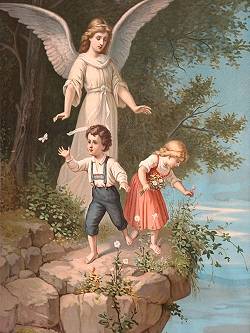See also
Name list
This page or section lists people that share the same given name. If an internal link led you here, you may wish to change that link to point directly to the intended article.
Trudy is a diminutive of Geertruida, and Gertrude. Notable people with the name include:
July 12 is the 193rd day of the year in the Gregorian calendar; 172 days remain until the end of the year.
March 17 is the 76th day of the year in the Gregorian calendar; 289 days remain until the end of the year.
Betty or Bettie is a name, a common diminutive for the names Bethany and Elizabeth. In Latin America, it is also a common diminutive for the given name Beatriz, the Spanish and Portuguese form of the Latin name Beatrix and the English name Beatrice. In the 17th and 18th centuries, it was more often a diminutive of Bethia.
Terry is a unisex given name, derived from French Thierry and Theodoric. It can also be used as a diminutive nickname for the names Teresa or Theresa (feminine) or Terence, Terrance or Terrier (masculine).
Lesley is a placename, given name and surname, a variant of Leslie that can be male or female name and is ultimately an anglicization of a Scottish (Gaelic) placename.
Vicky, Vicko, Vick, Vickie or Vicki is a feminine given name, often a hypocorism of Victoria. The feminine name Vicky in Greece comes from the name Vasiliki.

Nancy is an English language given name for women. The name Nancy was originally a diminutive form of Annis, a medieval English vernacular form of Agnes. In some English dialects, "mine" was used instead of "my" and "Mine Ancy" eventually became Nancy. The name was also later used as an English diminutive of Anne or Ann. It has been used as an independent name since the 18th century. In some instances it replaced variant Nanny, which was associated with the stereotype of a common, promiscuous woman from the 1600s onward. Spelling variants in use include Nancea, Nancee, Nancey, Nanci, Nancie, Nancsi, Nancye, Nanncey, Nanncy, Nansee, and Nansi. Similar names include Nan, Nance, Nanette, and Nannie.

Angela is a female given name. It is derived from the Greek word ángelos (ἄγγελος), meaning angel from Greek mythology. In the United States, the name "Angela" was at its most popular between 1965 and 1979, when it was ranked among the top 10 names for girls. Between 1922 and 2021, in the United States, the name was ranked in the top 35 names for girls.
Grant is an English, Scottish, and French surname derived from the French graund meaning 'tall' or 'large'. It was originally a nickname given to those with remarkable size.

Baker is a common surname of Old English (Anglo-Saxon) origin and Scotland where Gaelic was anglicized. From England the surname has spread to neighbouring countries such as Wales, Scotland and Ireland, and also to the English speaking areas of the Americas and Oceania where it is also common. The gaelic form of Baker in Scotland and Ireland is Mac a' Bhacstair. Some people with the surname have used DNA to trace their origins to Celtic countries and specifically to the Baxter sept of the Clan MacMillan in Scotland. It is an occupational name, which originated before the 8th century CE, from the name of the trade, baker. From the Middle English bakere and Old English bæcere, a derivation of bacan, meaning "to dry by heat". The bearer of this name may not only have been a baker of bread. The name was also used for others involved with baking in some way, including the owner of a communal oven in humbler communities. The female form of the name is Baxter, which is seen more in Scotland. The German form of the name is Bäcker.

Daisy is a feminine given name. The flower name comes from the Old English word dægeseage, meaning "day's eye". The name Daisy is therefore ultimately derived from this source. Daisy is also a nickname for Margaret because Marguerite, the French version of the latter name, is also a French name for the oxeye daisy.

Martha is a feminine given name. Patti, Patsy, and Patty were in use in Colonial America as English rhyming diminutives of the diminutive Mattie. Molly has been used as a diminutive of Martha since the 1700s.
Winston may be a family name of English origin, or a masculine given name.
Janet is a feminine given name meaning "God is gracious or gift from God". It is the feminine form of John. It is a variation of the French proper noun Jeannette, Spanish proper noun Juanita, Russian Жанет (Zhanet), Circassian Джэнэт (Janet), and Hungarian Zsanett. It is also the diminutive of Jeanne or Jane.
Briggs is a Northern English surname found mainly in West Yorkshire and derives from the Old Norse word bryggja meaning "bridge", and could also be related to the British Brigantes which once settled Yorkshire in the ancient Brythonic kingdom of Brigantia. Notable people with the surname include:
Rita is a female given name, often a name in its own right, but mostly a shortened version of Margarita. The feast day of Rita is generally celebrated on May 22 in honor of Saint Rita of Cascia.
Bob is a male given name or a hypocorism, usually of Robert, and sometimes a diminutive of Bobby. It is most common in English-speaking countries such as the United States, Canada, Ireland, the United Kingdom, Australia, and New Zealand and some Anglophone African countries.
Judy is a (usually) female personal name. It is sometimes a given name, but more often it is a hypocorism which takes the place of a given name, usually Judith.